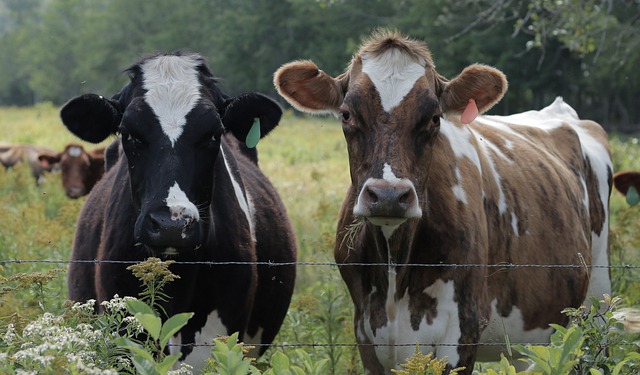News

Coliform Mastitis Vaccines Show a Decline in Effectiveness During the Lactation Period in Cows
Coliform mastitis is a common issue in dairy cows that can affect both the wellbeing of the animal as well as the amount of milk it produces. A research group including scientists from Virginia Tech and DairyNZ Ltd. recently compared the effect of two commercially available J5 bacterin vaccines on cows infected with E. coli near their peak lactation time. The study aimed to explore the effectiveness of this type of vaccine throughout the lactation period.
Vaccinated in three doses before challenge
36 cows, split into three groups of 12, were part of the study. One group was vaccinated with vaccine 1 (V1) while another was vaccinated with vaccine 2 (V2). The third group served as a control group.
The vaccinations were given in three doses. The first two doses of both vaccines were administered 60 and 21 days before calving. For V1 the third dose was administered 12 +/-1 day postpartum while V2 was administered 15 +/-2 days postpartum.
After the cows had been in milk for approximately 100 days they were challenged with E. coli.
Temperature loggers used to identify onset of fever
Throughout the study the vaginal temperature of the cows was monitored using Star-Oddi’s DST micro-T temperature loggers. This made it possible to identify the onset of fever with minimal disturbance to the animals.
In addition, cow activity, bacterial count, somatic cell score and milk yield was monitored.
Effectiveness appears to diminish over time
Overall, the study found that the clinical response to the E. coli challenge during peak lactation did not differ significantly between vaccinate and unvaccinated cows.
However, vaccinated animals displayed fever three hours earlier than unvaccinated cows and less restlessness in the first two days after the challenge.
In addition, V1 cows showed a higher production of IgG1 and IgG2 compared to V2 cows. This was, however, not connected to any improvement in recovery from the challenge. No differences were found between treatments when it came to bacterial count, somatic cell score or milk yield.
According to these results, the effects of immunization with J5 vaccination had diminished at the time of peak lactation. The authors suggest that it may be necessary to administer additional doses of the vaccine to successfully protect against coliform mastitis throughout lactation.
The paper was published in the Journal of Dairy Science.